Table of Contents
Come join us now, and enjoy playing your beloved music and browse through great scores of every level and styles!
Can’t find the songbook you’re looking for? Please, email us at: sheetmusiclibrarypdf@gmail.com We’d like to help you!
Sorabji: In the Hothouse (from Two Piano Pieces) sheet music, Noten, partitura, spartiti 楽譜

Best Sheet Music download from our Library.
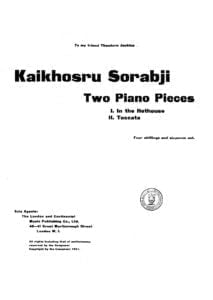
Please, subscribe to our Library.
If you are already a subscriber, please, check our NEW SCORES’ page every month for new sheet music. THANK YOU!
Browse in the Library:
Or browse in the categories menus & download the Library Catalog PDF:
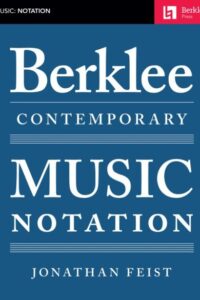
Who was Sorabji?
Kaikhosru Shapurji Sorabji: The Hermit of Modernist Maximalism
In the often-crowded pantheon of 20th-century composers, Kaikhosru Shapurji Sorabji (1892-1988) occupies a unique and enigmatic niche. A composer of staggering ambition, labyrinthine complexity, and self-imposed isolation, Sorabji crafted some of the most monumental, technically demanding, and stylistically idiosyncratic music ever conceived. His work, largely ignored during his lifetime and still challenging audiences today, represents a singular path through modernism – one defined by maximalism, intricate ornamentation, transcendental virtuosity, and a fierce, almost hermetic, independence.
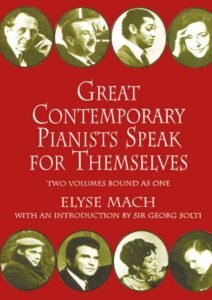
Biography: A Self-Forged Identity
- Birth & Heritage: Born Leon Dudley Sorabji on August 14, 1892, in Chingford, Essex, England. His father was a Parsi engineer from India (thus the Persian-derived name Sorabji), and his mother was English-Spanish. This mixed heritage profoundly shaped his sense of identity, though he felt alienated from both cultures.
- The Name: Around 1914, he legally changed his name to Kaikhosru Shapurji Sorabji. “Kaikhosru” and “Shapurji” were Persian names chosen for their resonance and connection to ancient Persian history and Zoroastrianism, reflecting his deliberate construction of a unique persona.
- Musical Formation: Largely self-taught. He received some piano lessons in his youth but had no formal composition training. His musical education came through voracious listening, score study (especially Bach, Liszt, Busoni, Debussy, Ravel, Scriabin, Szymanowski, Medtner), and wide reading in literature, philosophy, and the occult.
- Early Career & Criticism: Worked as a music critic (under the pseudonym “S. Godfrey”) for outlets like The New Age and The New English Weekly from the 1910s to the 1930s. His critiques were famously acerbic, insightful, and often scathing, particularly targeting English musical provincialism and composers he deemed mediocre (which was most of them).
- The Recluse: Deeply disillusioned by the musical establishment and critical reception to his early performances (which were rare and often controversial), Sorabji gradually withdrew from public musical life starting in the late 1930s. After his mother’s death in 1940, he retreated almost completely to his secluded home “The Eye” in Corfe Castle, Dorset, where he lived with his companion, Reginald Norman Best, until his death. He forbade performances of his music for decades.
- The Ban Lifted: In 1976, pressured by a growing underground interest spearheaded by pianists like Yonty Solomon and Alistair Hinton (who later became his literary executor), Sorabji reluctantly lifted the ban on performances, provided he approved the performer.
- Death: Sorabji died on October 15, 1988, in Winfrith Newburgh, Dorset, leaving behind a colossal legacy of unpublished manuscripts.
Works: Monuments of Sound

Sorabji’s output is vast and overwhelmingly dominated by solo piano music, though he also composed orchestral works, chamber music, organ symphonies, and songs. His works are renowned for their extreme length, density, and technical difficulty, pushing the boundaries of playability.
- Key Masterpieces:
- Opus Clavicembalisticum (1930): His most famous (or infamous) work. A colossal 4+ hour piano epic in 12 movements (including fugues, passacaglias, toccatas, cadenzas), often considered one of the most challenging solo piano works ever written. A summit of contrapuntal complexity and virtuosic display.
- Symphonic Variations for Piano (1935-37): Another monumental work, exploring vast variation forms over an extended duration.
- Sequentia Cyclica super “Dies iræ” ex Missa pro Defunctis (1948-49): A massive cycle of 27 variations on the “Dies Irae” chant, demonstrating his intricate contrapuntal and transformative skills.
- 100 Transcendental Studies (1940-44): True to their name, these studies explore extreme technical and expressive demands far beyond those of Liszt or Chopin.
- Symphonies for Solo Piano: Several exist, including his Symphony No. 2 (“Jāmī”), blending orchestral textures and scope onto the piano.
- Gulistān – Nocturne for Piano (1940): A prime example of his lush, perfumed, and incredibly intricate “Persian”-inspired style.
- Concerti: He wrote several for solo piano and orchestra (e.g., Concerto per suonare da me solo e senza orchestra, per divertirsi), which are symphonic in scale and require superhuman virtuosity.
- Symphonies for Organ: Vast, complex works exploring the sonic possibilities of the instrument.
Analysis of Style: A Universe of Complexity
Sorabji’s style is instantly recognizable yet difficult to categorize. It synthesizes diverse elements into a unique and overwhelming whole:
- Maximalism: This is the defining characteristic. Sorabji embraced extremes:
- Length: Works lasting several hours are common.
- Density: Highly polyphonic textures, often with multiple independent melodic lines woven together in complex counterpoint (influenced by Bach, Busoni).
- Virtuosity: Demands transcendental technique – cascades of notes, complex polyrhythms, wide leaps, immense power, and extreme delicacy. He wrote as if the pianist had four hands.
- Ornamentation: Baroque-like ornamentation (trills, mordents, turns, grace notes) is ubiquitous, often layered and integral to the texture, creating shimmering, kaleidoscopic surfaces (influenced by Scriabin, Szymanowski, Middle Eastern/Persian music).
- Dynamic Range: From barely audible whispers to thunderous, percussive climaxes.
- Harmony: A complex fusion:
- Rooted in late-Romantic chromaticism (Scriabin, Szymanowski, early Schoenberg).
- Freely employed dissonance, clusters, and intricate chord structures.
- Often retained a sense of tonal centers or polarity, even amidst dense chromaticism (unlike strict atonality).
- Incorporated modal inflections, sometimes evoking Persian or Spanish flavors.
- Rhythm: Highly complex and fluid:
- Frequent use of polyrhythms (multiple simultaneous rhythms), cross-rhythms, and nested tuplets (triplets within quintuplets, etc.).
- Tempo often fluctuates wildly, requiring immense control.
- A sense of improvisatory freedom within highly structured forms.
- Form: Often large-scale, complex, and idiosyncratic:
- Favored variations (passacaglias, chaconnes), fugues, toccatas, and intricate multi-movement structures (like the Opus Clavicembalisticum).
- Forms were often expansive and cumulative, building through layered repetition and intensification rather than traditional development.
- Architecture was paramount, even in the densest textures.
- Influences (Assimilated, Not Imitated):
- Ferruccio Busoni: The most profound influence. Busoni’s ideas of “Young Classicism,” the transcendental potential of the piano, the fusion of Bachian counterpoint with modern harmony, and the concept of “Junge Klassizität” resonated deeply. Sorabji dedicated his Opus Clavicembalisticum to Busoni’s memory.
- Franz Liszt: Virtuosity, thematic transformation, large-scale forms, and the symphonic poem concept translated to piano.
- J.S. Bach: Contrapuntal mastery, structural rigor, and the use of forms like fugue and passacaglia.
- Alexander Scriabin: Mysticism, harmonic language, dense textures, and ecstatic climaxes.
- Karol Szymanowski: Sensuous harmony, intricate ornamentation (especially in the “Persian” inspired works like Métopes and Masques), and voluptuous textures.
- Debussy & Ravel: Color, texture, exoticism, and pianistic refinement.
- Mediterranean & Persian Cultures: While not authentically recreating these styles, he evoked their essence through ornamentation, melodic turns, and titles (Gulistān, Jāmī), reflecting his fascination with his Persian heritage and the wider Orient.
- Aesthetic: Sorabji’s music aimed for:
- Transcendence: Pushing beyond perceived limits of instrument, performer, and listener.
- Luxuriance & Opulence: A rich, sensual, almost decadent sound world.
- Intellectual Rigor: Underlying the sensual surface was meticulous structural planning.
- Individualism: A complete rejection of prevailing trends (serialism, neoclassicism, minimalism) in favor of his own uncompromising vision.
Legacy: From Obscurity to Cult Status
Sorabji’s legacy is complex and evolving:
- Decades of Neglect: His self-imposed exile and performance ban meant his music was virtually unknown outside a tiny circle for nearly 40 years. Manuscripts were inaccessible, unplayable, and unpublished.
- The Pioneers (1970s-): The lifting of the ban sparked interest. Pianists like Yonty Solomon, Michael Habermann, Geoffrey Douglas Madge (who made the first complete recording of Opus Clavicembalisticum in 1977), and later Marc-André Hamelin, Jonathan Powell, Fredrik Ullén, and Ronald Stevenson began the monumental task of learning, performing, and recording his works. This required immense dedication and technical prowess.
- Publication & Scholarship: The Sorabji Archive, established by Alistair Hinton (Sorabji’s literary executor), has been crucial in cataloging, editing, and facilitating the publication of scores (primarily by Dover Publications and The Sorabji Music Archive). Scholarly work is gradually increasing.
- Recordings Renaissance: The CD era and digital distribution (YouTube, streaming) have been transformative. Dedicated labels (Altarus, BIS, Toccata Classics, Piano Classics) have released numerous recordings, making this once-inaccessible music available globally. Complete cycles of the 100 Studies and other major works are underway.
- The Cult & The Challenge: Sorabji remains a “composer’s composer” and a cult figure. His music is not mainstream concert fare due to its extreme demands and duration. However, it commands deep respect and fascination among pianists, composers, and listeners drawn to its unique sound world and uncompromising vision. He is seen as the ultimate iconoclast, forging a path utterly independent of 20th-century musical fashions.
- Influence: His direct influence on other composers is hard to pinpoint due to his obscurity, but he stands as a powerful symbol of uncompromising artistic integrity and the exploration of extreme complexity and virtuosity. Composers interested in maximalism, intricate counterpoint, or pushing pianistic limits inevitably encounter his shadow.
- Copyright Controversy: The complex copyright status of his works (involving the Sorabji Archive and publishers) has sometimes been a point of friction within the community of performers and scholars seeking access.
Sorabji: The Solitary Giant
Kaikhosru Shapurji Sorabji was a true original. He inhabited a musical universe entirely of his own making, synthesizing diverse influences into a style characterized by unparalleled complexity, sensuous opulence, and transcendental ambition. His deliberate withdrawal from the world ensured decades of obscurity, but the dedication of pioneering performers and the power of recording technology have brought his extraordinary soundscapes to light. While his music remains challenging and demanding, it offers unparalleled rewards: a journey into a world of labyrinthine beauty, overwhelming power, and intellectual fascination. Sorabji stands as a testament to the power of an utterly individual artistic vision, uncompromising in its scope and ambition, a solitary giant whose monumental creations continue to challenge and inspire. He redefined the possible for the piano and left a legacy that continues to unfold as more performers dare to scale his musical Himalayas.
“In the Hothouse” is one of Sorabji’s most evocative and frequently performed works, serving as a perfect entry point into his dense, sensuous sound world. Here’s a detailed look at this fascinating piece:
Context: Two Piano Pieces (1918)
- Composed: 1918 (early in Sorabji’s career, age 26).
- Publication: First published in 1920, making it one of the earliest Sorabji works available in print.
- The Pair: “In the Hothouse” is paired with “Toccata” – a contrasting, hyper-virtuosic, and structurally complex piece showing his Busoni/Liszt influences. “In the Hothouse” offers the sensual, atmospheric counterpoint.
- Significance: Represents Sorabji’s early mastery of texture, harmony, and evocative atmosphere. It predates his gargantuan works but already displays his unique voice.
“In the Hothouse”: A Sensory Immersion
- Title & Imagery: The title instantly conjures an environment: humid, lush, teeming with exotic, overripe plant life, heavy perfumes, and stifling, enclosed heat. Sorabji translates this sensory overload into sound.
- Form & Structure: Relatively free and rhapsodic. It unfolds as a continuous, organic stream of consciousness rather than adhering to strict classical forms. Think of it as an elaborate, decadent arabesque.
- Style & Character:
- Extreme Sensuality: This is the defining feature. The music drips with lush, complex harmonies and suffocatingly rich textures.
- Harmony: Deeply chromatic, rooted in late Scriabin and early Szymanowski. Expect dense, constantly shifting chords: augmented harmonies, whole-tone inflections, unresolved dissonances creating tension, and sudden moments of surprising consonance like shafts of light piercing foliage. It avoids traditional tonality but gravitates around implied centers.
- Texture: Thick, layered, and constantly in motion. Tremolos, trills, rapid filigree (ornamental passages), and cascading arpeggios create a shimmering, humid haze. Melodies are often embedded within this dense undergrowth rather than standing clearly apart. The writing often requires the pianist to sustain multiple layers simultaneously.
- Rhythm: Fluid and flexible, often obscured by the sheer density of notes and ornamentation. Rubato (expressive tempo fluctuations) is essential. While less overtly complex polyrhythmically than his later works, the rhythmic flow feels organic and improvisatory.
- Dynamics & Articulation: Wide dynamic range, often shifting suddenly between extremes (e.g., thunderous climaxes collapsing into fragile whispers). Articulation varies from sharp staccatos to legatissimo passages that blur together. Pedaling is crucial for sustaining the harmonic haze and creating resonance.
- Ornamentation: Quintessential early Sorabji. Trills, mordents, turns, and grace notes are not mere decoration; they are the texture, creating constant flickering movement and contributing to the claustrophobic, teeming atmosphere. This foreshadows the intricate ornamentation dominating his mature style.
- Emotional Landscape: Evokes opulence, decadence, languor, mystery, stifling heat, hidden dangers, and overwhelming sensory stimulation. There’s a sense of beauty bordering on the grotesque due to its sheer intensity.
Influences Audible in “In the Hothouse”
- Scriabin (Primary): The harmonic language (mystic chords, unresolved dissonance, ecstatic climaxes), the sensual atmosphere, and the use of trills/tremolos are deeply indebted to Scriabin’s late sonatas and poems (e.g., Vers la flamme). Sorabji pushes Scriabin’s decadence further.
- Szymanowski: The opulent textures, perfumed harmonies, and “orientalist” exoticism (though abstracted here) strongly recall Szymanowski’s “Métopes” or “Masques,” which Sorabji admired deeply.
- Debussy: The focus on atmosphere, texture, and harmonic color (whole-tone scales, parallel chords) shows Debussy’s influence, though rendered with far greater density and intensity.
- Ravel: The virtuosic filigree and lush harmonies (think “Gaspard de la Nuit,” especially “Ondine” or “Le gibet”) are a touchstone, again amplified.
- Liszt: The rhapsodic freedom and dramatic gestures hint at Liszt, though filtered through a post-Scriabinesque lens.
Performance Challenges
- Texture & Balance: Maintaining clarity amidst the dense, rapidly shifting textures is paramount. The pianist must carefully voice chords and layers to prevent muddiness while sustaining the essential harmonic haze.
- Ornamentation as Texture: Executing the constant ornamentation smoothly and evenly, integrating it into the melodic and harmonic flow rather than treating it as mere decoration.
- Dynamic Control: Navigating the extreme dynamic contrasts and sudden shifts without sounding jarring. Creating a true pianissimo shimmer within complexity is incredibly difficult.
- Rubato & Phrasing: Applying expressive tempo fluctuations naturally while maintaining the overall structural coherence and forward momentum of the rhapsodic form.
- Pedaling: Using the pedal to create resonance and blend without causing harmonic blurring or loss of rhythmic definition. Requires exceptional sensitivity.
- Stamina & Focus: While shorter than his later works (typically 12-15 minutes), the piece demands intense concentration and physical control to sustain the atmosphere and navigate the technical intricacies.
Legacy & Significance of “In the Hothouse”
- Accessibility: It remains one of Sorabji’s most “accessible” works due to its evocative title, relatively shorter duration, and concentrated expression. It’s a frequent choice for pianists introducing audiences to Sorabji.
- Blueprint: It serves as a crucial blueprint for Sorabji’s mature style, showcasing his core preoccupations: sensuality, harmonic density, intricate ornamentation as texture, and atmospheric evocation, all present in embryonic form.
- Performance History: Despite Sorabji’s later ban, “In the Hothouse” (along with the Toccata) was one of the few pieces occasionally performed during his lifetime (e.g., by Sorabji himself and pianist Reginald Paul) and became a key work for the pioneering generation post-1976 (Yonty Solomon, Michael Habermann, Marc-André Hamelin, Jonathan Powell, Fredrik Ullén).
- Gateway Piece: It functions as a vital “gateway drug” into Sorabji’s world. Its success in conveying its intense atmosphere often encourages listeners to explore his more monumental, complex works.
- Standalone Masterpiece: Regardless of its role as an introduction, it stands as a perfectly formed and powerful piece of early modernist piano writing, a miniature tone poem of extraordinary evocative power.
“In the Hothouse” is a sun-drenched, overripe, and intoxicating immersion into Sorabji’s unique aesthetic. It captures the essence of his sensual maximalism in a concentrated dose, showcasing his debt to Scriabin and Szymanowski while asserting his own distinct voice. Its evocative power, technical brilliance, and relative brevity ensure its enduring place as one of his most beloved and frequently performed works, offering a compelling glimpse into the hothouse of Sorabji’s extraordinary musical imagination.
| Artist or Composer / Score name | Cover | List of Contents |
|---|---|---|
| Toquinho Songbook (Almir Chediak) Guitar |
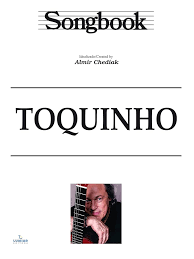 |
Toquinho Songbook (Almir Chediak) Guitar |
| Tori Amos – Silent All These Years | ||
| Tori Amos Anthology Her Life In Music 25 Song Piano Vocal Guitar |
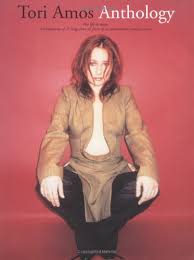 |
Tori Amos Anthology Her Life In Music 25 Song Piano Vocal Guitar |
| Tori Amos Little Earthquakes Piano Vocal Guitar |
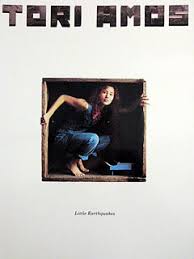 |
Tori Amos Little Earthquakes Piano Vocal Guitar |
| Tori Amos Tales Of A Librarian Piano Vocal Guitar |
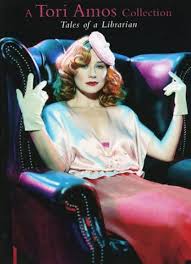 |
Tori Amos Tales Of A Librarian Piano Vocal Guitar |
| Tori Amos The Bee Sides Piano Vocal Guitar |
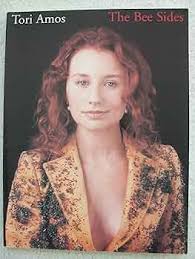 |
Tori Amos The Bee Sides Piano Vocal Guitar |
| Tori Amos The Beekeeper Piano Vocal Guitar |
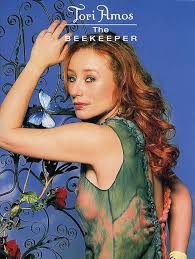 |
Tori Amos The Beekeeper Piano Vocal Guitar |
| Tori Amos Unplugged Piano Vocal Guitar |
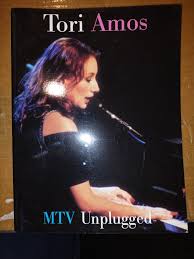 |
Tori Amos Unplugged Piano Vocal Guitar |
| Tori Kelly Paper Hearts Piano |
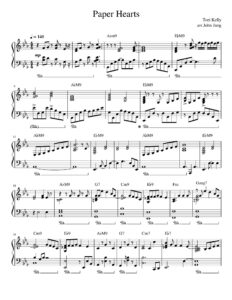 |
|
| Torna A Surriento Traditional Neapolitan Song By Ernesto De Curtis (Easy Piano Solo With Lyrics In English) |
 |
|
| Torna a Surriento.mscz | ||
| Toshi Ichiyanagi In A Living Memory For Flute Solo |
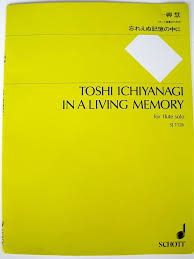 |
|
| Toshifumi Hinata End Title (Tokyo Love Story) |
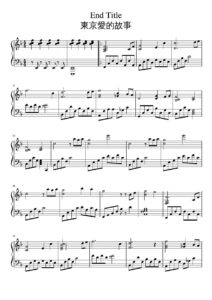 |
|
| Toshihiko Sahashi Fuuki Iinchou Hibari Kyoya | Toshihiko Sahashi Fuuki Iinchou Hibari Kyoya | |
| Toshihiko Sahashi Katekyo Hitman Reborn Hibari Kyoyas Theme | Toshihiko Sahashi Katekyo Hitman Reborn Hibari Kyoyas Theme | |
| Toshihiko Sahashi Tsuna Awakens Ost Katekyo Hitman Reborn |
 Toshihiko Sahashi Tsuna Awakens Ost Katekyo Hitman Reborn
Toshihiko Sahashi Tsuna Awakens Ost Katekyo Hitman Reborn |
|
| Toshio Hosokawa Chant For Violoncello And Orchestra |
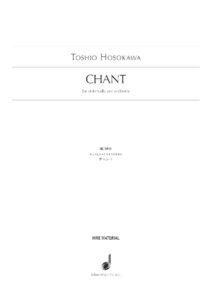 |
|
| Toshio Hosokawa Nacht Klange For Piano Solo SJ 1102 |
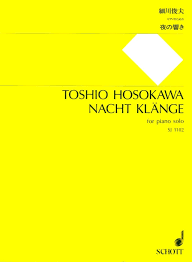 |
|
| Toshio Hosokawa Reminiscence For Marimba SJ 1160 |
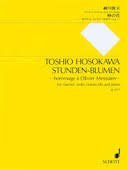 |
|
| Toshio Hosokawa Renka Soprano And Guitar SJ 106 |
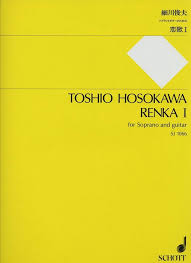 |
|
| Toshio Hosokawa Silent Flowers for String Quartet SJ 1121 |
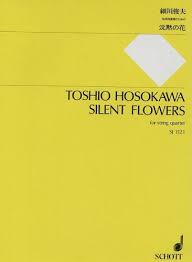 |
|
| Toshio Masuda Naruto – Grief and Sorrow (Hokage’s Funeral) Piano and Violin (Musescore file).mscz | Musescore File | |
| Total Guitar – The ultimate scale book |
 |
|
| Toto Guitar Anthology Authentic Guitar Tab |
 |
Toto Guitar Anthology Authentic |
| Toto – Africa (Easy Piano Solo Arr. Sheet Music) | Toto – Africa (Easy Piano Solo Arr. Sheet Music) | |
| Toto – Africa (Intermediate Piano Solo arr.) | Toto – Africa | |
| Toto – Childs Anthem (Intermediare Piano Solo arr.) | Toto – Childs Anthem (Intermediate Piano Solo arr) | |
| Toto – The Best Of Toto (Guitar, Kbds, Bass, Drum, Vocal) | Toto – The Best Of Toto (Guitar, Kbds, Bass, Drum, Vocal) | |
| Toto Cutugno C’est Venice | Toto Cutugno C’est Venice | |
| Toto Cutugno L’italiano | Toto Cutugno L’italiano | |
| Toto Cutugno Solo Noi | Toto Cutugno Solo Noi | |
| Tournemire op. 33 Po me Mystique | ||
| Tracy Chapman – Complete Songbook |
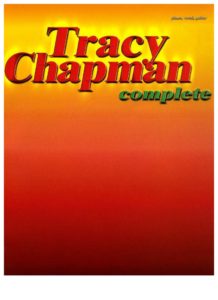 |
Tracy Chapman – Complete Songbook |
| Tracy Chapman – Tracy Chapman music songbook |
 |
Tracy Chapman – Tracy Chapman music songbook |
| Tracy Chapman Fast Car Sheet Music |
 |
|
| Traditional – Swing Low Sweet Charriot | Traditional – Swing Low Sweet Charriot | |
| Traditional Dona Nobis Pacem (Piano Solo Arr.) Give Us Peace Musescore File.mscz | ||
| Traditional English Carol – The First Noel | Traditional English Carol – The First Noel | |
| Traditional English Carol The First Noël (Piano Solo).mscz | ||
| Traditional Spiritual Go Tell It On The Mountain Arr. By Philip Kern |
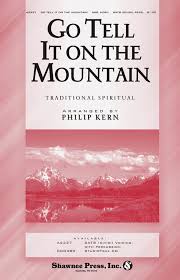 |
|
| Trailer Park The Musical Piano Vocal Score by David Nehls and Betsy Kelso |
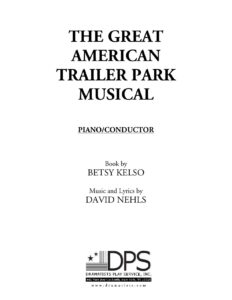 |
|
| Train – Drops Of Jupiter | ||
| Train Piano Sheet Music Collection Piano Vocal Guitar |
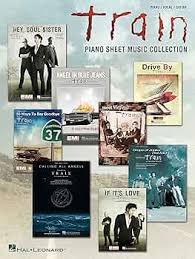 |
Train Piano Sheet Music Collection Piano Vocal Guitar |
| Transparent Theme (Solo Piano) (Musescore File).mscz | ||
| Tratado de Armonia – Arnold Schoenberg (Spanish-Español) | Book Theory | |
| Travelin Soldier – Dixie Chicks | ||
| Trepat , Carles – Homenaje A Baden Powel |
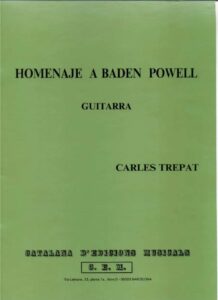 |
|
| Trepat, Carles Nana De Sevilla Partitura (Guitar, Guitarra) |
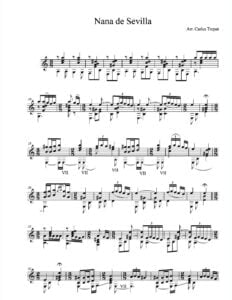 |
|
| Trinity – Pop and Rock Guitar Grade 1 Contemporary & Classic songs with TABs TCL |
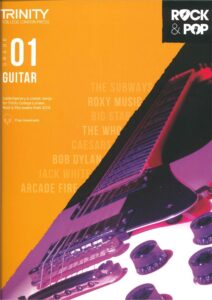 |
Trinity – Pop and Rock Guitar Grade 1 Contemporary & Classic songs |
| Trinity – Pop and Rock Guitar Grade 2 Contemporary & Classic songs with TABs TCL |
 |
Trinity – Pop and Rock Guitar Grade 2 Contemporary & Classic songs |
| Trinity – Pop and Rock Guitar Grade 3 Contemporary & Classic songs with TABs TCL |
 |
Trinity – Pop and Rock Guitar Grade 3 Contemporary & Classic songs |
| Trinity – Pop and Rock Guitar Grade 4 Contemporary & Classic songs with TABs TCL |
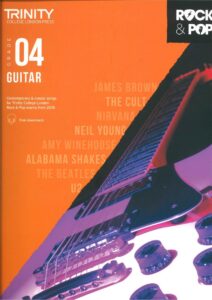 |
Trinity – Pop and Rock Guitar Grade 4 Contemporary & Classic songs |
| Trinity 2010-2015 Guitar Grade 3 Pieces & Exercises TCL |
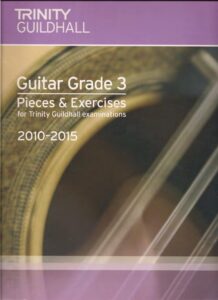 |
|
| Trinity Acoustic Guitar Grade 03 05 Fingerstyle And Plectrum With Mp3 Guitar Exam 2020 2023 TCL |
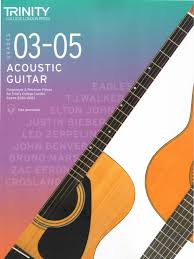 |
Trinity Acoustic Guitar Grade 03 05 Fingerstyle And Plectrum With Mp3 Guitar Exam 2020 2023 |
| Trinity Acoustic Guitar Grade 06 08 Fingerstyle And Plectrum Guitar Exam 2020 2023 TCL |
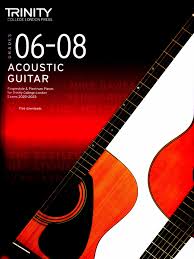 |
Trinity Acoustic Guitar Grade 06 08 Fingerstyle And Plectrum Guitar Exam 2020 2023 |
| Trinity Acoustic Guitar Initial To Grade 02 Fingerstyle And Plectrum Guitar Exam 2020 2023 TCL |
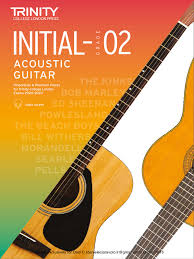 |
Trinity Acoustic Guitar Initial To Grade 02 Fingerstyle And Plectrum Guitar Exam 2020 2023 |
| Trinity Classical Guitar 2010-2015 Grade 07 TCL |
 |
|
| Trinity Classical Guitar 2020-2023 Grade 01 TCL |
 |
|
| Trinity Classical Guitar 2020-2023 Grade 02 TCL |
 |
|
| Trinity Classical Guitar 2020-2023 Grade 03 TCL |
 |
|
| Trinity Classical Guitar 2020-2023 Grade 04 TCL |
 |
|
| Trinity Classical Guitar 2020-2023 Grade 05 TCL |
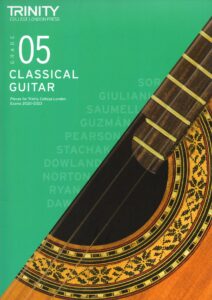 |
|
| Trinity Classical Guitar 2020-2023 Grade 06 TCL |
 |
|
| Trinity Classical Guitar 2020-2023 Grade 08 TCL |
 |
|
| Trinity Classical Guitar 2020-2023 INITIAL TCL |
 |
|
| Trinity Classical Guitar Grade 05 2010-2015 TCL |
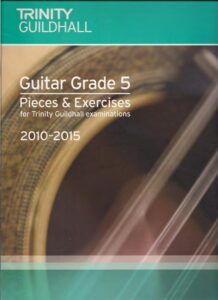 |
|
| Trinity Electronic Keyboard Grade 1 Pieces & Technical work TCL |
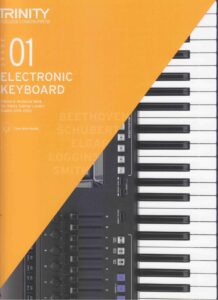 |
Trinity Electronic Keyboard Grade 1 |
| Trinity Electronic Keyboard Grade 2 Pieces & Technical work TCL |
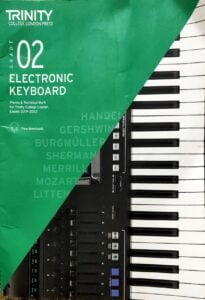 |
Trinity Electronic Keyboard Grade 2 |
| Trinity Electronic Keyboard Grade 6 Pieces & Technical work TCL |
 |
Trinity Electronic Keyboard Grade 6 |
| Trinity Electronic Keyboard Grade 7 Pieces & Technical work TCL |
 |
Trinity Electronic Keyboard Grade 7 |
| Trinity Electronic Keyboard Initial Grade 2019-2022 TCL |
 |
|
| Trinity Electronic Keyboard Initial Pieces and Technical Work 2015-2018 TCL |
 |
|
| Trinity Electronic Keyboard Sample Booklet TCL |
 |
|
| Trinity Guitar 2016 2019 Grade 1 TCL |
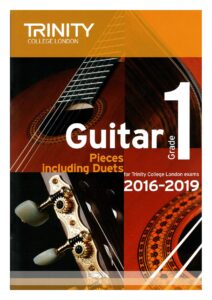 |
|
| Trinity Guitar 2016 2019 Grade 2 TCL |
 |
|
| Trinity Guitar 2016 2019 Grade 3 TCL |
 |
|
| Trinity Guitar 2016 2019 Grade 4 TCL |
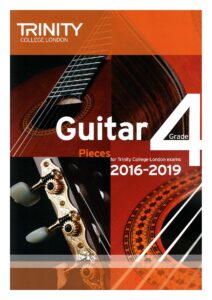 |
|
| Trinity Guitar 2016 2019 Grade 5 TCL |
 |
|
| Trinity Guitar 2016 2019 Grade 6 TCL |
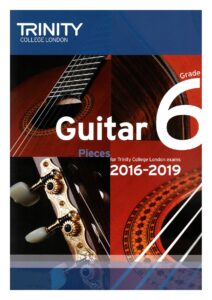 |
|
| Trinity Guitar 2016 2019 Grade 7 TCL |
 |
|
| Trinity Guitar 2016 2019 Grade 8 TCL |
 |
|
| Trinity Guitar 2016 2019 Initial TCL |
 |
|
| Trinity Guitar Initial to Grade 5 Scales Arpeggios and studies TCL |
 |
|
| Trinity Piano Grade 1 Pieces and exercises 2018 2020 TCL |
 |
Trinity Piano Grade 1 Pieces and exercises 2018 2020 |
| Trinity Piano Grade 2 Pieces and exercises 2018 2020 TCL |
 |
|
| Trinity Piano Grade 3 Pieces and exercises 2018 2020 TCL |
 |
|
| Trinity Piano Grade 5 Pieces and exercises TCL |
 |
|
| Trinity Piano Grade 6 (2021-2023) Extended Edition TCL |
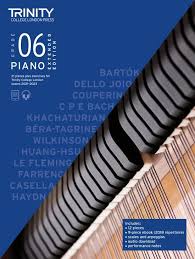 |
Trinity Piano Grade 6 (2021-2023) Extended Edition |
| Trinity Piano Grade 6 Pieces and exercises TCL |
 |
|
| Trinity Piano Grades from Initial to 8 (2023) Extended Editions TCL |
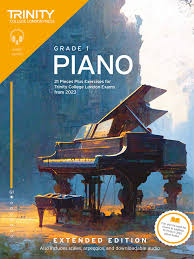 |
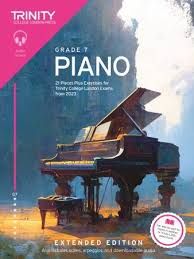 |
| Trinity Piano Initial 2021-2023 Extended Edition TCL |
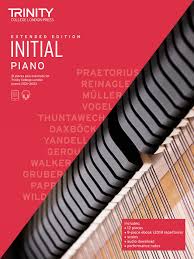 |
Trinity Piano Initial 2021-2023 Extended Edition |
| Trinity Piano Initial Piano 2018-2020 TCL |
 |
Trinity Piano Initial Piano 2018-2020 |
| Trinity Piano Pieces And Exercises Grade 1 2015 2017 TCL |
 |
Trinity Piano Pieces And Exercises Grade 1 2015 2017 |
| Trinity Piano Pieces And Exercises Grade 2 2015 2017 TCL |
 |
Trinity Piano Pieces And Exercises Grade 2 2015 2017 |
| Trinity Piano Pieces Grade 1 2021-2023 TCL |
 |
Trinity Piano Pieces Grade 1 2021-2023 |
| Trinity Piano Pieces Grade 2 12 Piano Pieces 2021-2023 TCL |
 |
Trinity Piano Pieces Grade 2 12 Piano Pieces 2021-2023 |
| Trinity Rock and Pop Guitar Grade 8 (Contemporary and classic songs) with Tablature TCL |
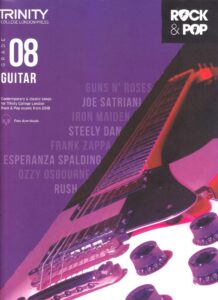 |
Trinity Rock and Pop Guitar Grade 8 (Contemporary and classic songs) |
| Trinity Sight Reading Book 1 Sound at sight Piano TCL |
 |
|
| Trinity Theory Of Music Workbook Grade 1 TCL |
 |
Trinity Theory Of Music Workbook Grade 1 |
| Trivium Guitar Tab Anthology |
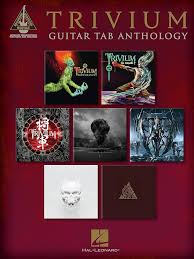 |
Trivium Guitar Tab Anthology |
| True Silent Hill-2- Akira-Yamaoka |
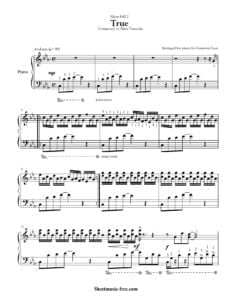 |
|
| Truman Show, The Reunion Philip Glass |
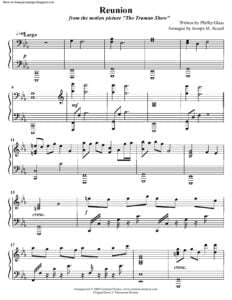 |
|
| Trumpet Classical Pieces Pieces Classiques Trompette 1 Klassische Stücke (Trumpet In C Or Bb) |
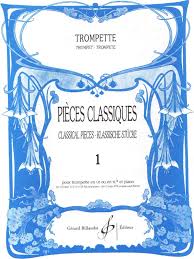 |
Trumpet Classical Pieces Pieces Classiques Trompette 1 Klassische Stücke (Trumpet In C Or Bb) |
| Trumpet Classical Pieces Pieces Classiques Trompette 2 Klassische Stücke (Trumpet In C Or Bb) |
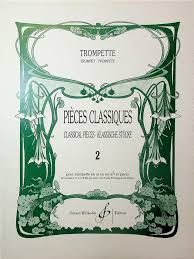 |
Trumpet Classical Pieces Pieces Classiques Trompette 2 Klassische Stücke (Trumpet In C Or Bb) |
| Trumpet Method Allen Vizzutti Trumpet Method Book 1 2 3 Complete |
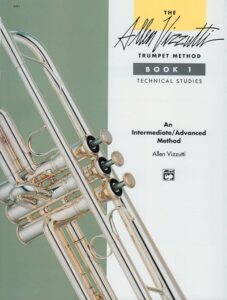 |
|
| Trumpet Method Anthony Plog Method For Trumpet Complete 7 books |
 |
|
| Trumpet Omnibook For Bb B Flat Instruments Transcribed Exactly From Artist Recorded Solos |
 |
Trumpet Omnibook For B Flat Instruments Transcribed Exactly From Artist Recorded Solos |
| Trumpet Plus Vol 1 By Arturo Himmer Trumpet Standards |
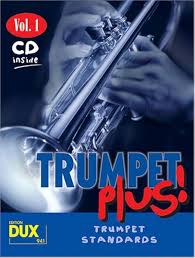 |
Trumpet Plus Vol 1 By Arturo Himmer Trumpet Standards |
| Trumpet Plus Vol 3 By Arturo Himmer Jazz & Swing |
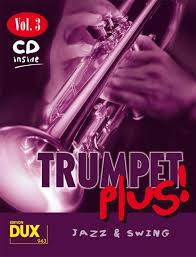 |
Trumpet Plus Vol 3 By Arturo Himmer Jazz & Swing |
| Trumpet Solos, Easy (The Canadian Brass) |
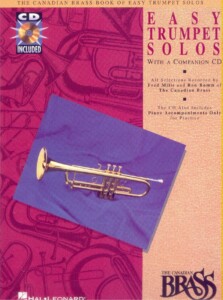 |
|
| Trumpet, The (John Wallace, Alexander McGrattan) Yale Musical Instruments Series (Book) |
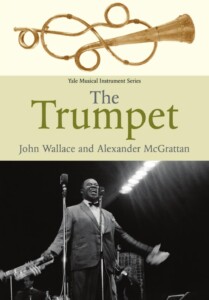 |
|
| Tsim Sha Tsui Stroll (Lust, Caution OST) Alexandre Desplat | ||
| Tu vuo’ fa’ l’Americano (Renato Carosone) | ||
| Tubular Bells (Mike Oldfield) |
 |
|
| Tubular Bells Intro – Mike Oldfield (Musescore File).mscz | ||
| Tuck Andress Europa by Carlos Santana guitar TABs |
 |
|
| Tuck Everlasting (The Musical) Music By Chris Miller Lyrics By Nathan Tysen (Piano Vocal Selections) |
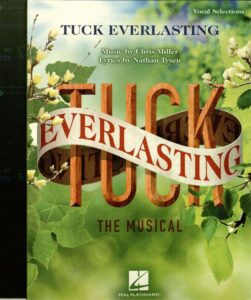 |
Tuck Everlasting (The Musical) Music By Chris Miller Lyrics By Nathan Tysen (Piano Vocal Selections) |
| Tunes For Ten Fingers A First Piano Book By Pauline Hall (Oxford) |
 |
|
| TV and Movie Themes (Piano, Vocal, Guitar) |
 |
TV and Movie Themes (Piano, Vocal, Guitar) |
| TV Detective Themes For Solo Piano |
 |
TV Detective Themes For Solo Piano |
| TV Fake Book, The |
 |
TV Fake Book, The |
| TV Songs Big Book Of TV Theme Songs 2nd Edition Piano Vocal Guitar |
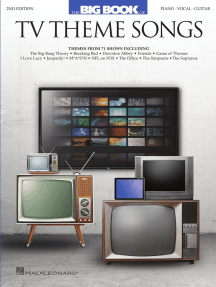 |
TV Songs Big Book Of TV Theme Songs 2nd Edition Piano Vocal Guitar Contents |
| Twelve Etudes Op 8 No 12 Scriabin (Musescore File).mscz | ||
| Twenty One Pilots – Goner |
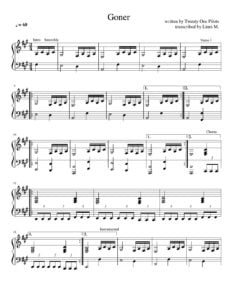 |
|
| Twenty One Pilots – Heathens – Piano |
 |
|
| Twenty One Pilots – Heathens (arr. for guitar TABs) | Twenty One Pilots – Heathens (arr. for guitar TABs) | |
| Twenty One Pilots – Heathens (Piano vocal) | Twenty One Pilots – Heathens (Piano vocal) | |
| Twenty One Pilots – Stressed Out Sheet Music | Twenty One Pilots – Stressed Out Sheet Music | |
| Twenty One Pilots – Vessel (Medley) | Twenty One Pilots – Vessel (Medley) | |
| Twenty One Pilots Kitchen Sink (piano solo) | Twenty One Pilots Kitchen Sink (piano solo) | |
| Twenty-Four Italian Songs And Arias Medium High |
 |
Twenty-Four Italian Songs And Arias, Medium High |
| Twice – Knock Knock Piano Solo |
 |
|
| Twilight – The Score – Carter Burwell |
 |
Twilight – The Score – CArter Burwell |
| Twilight Breaking Dawn Part 1 Music From The Motion Picture Score By Carter Burwell Piano Solo |
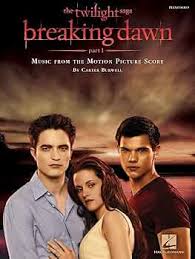 |
Twilight Breaking Dawn Part 1 Music From The Motion Picture Score By Carter Burwell Piano Solo |
| Twilight Breaking Dawn Part 1 Music From The Motion Picture Score By Carter Burwell Piano Vocal Guitar |
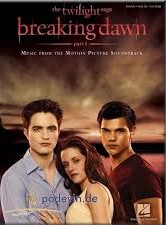 |
Twilight Breaking Dawn Part 1 Music From The Motion Picture Score By Carter Burwell Piano Vocal Guitar |
| Twilight saga – New Moon Music Score for Piano Solo Alexandre Desplat |
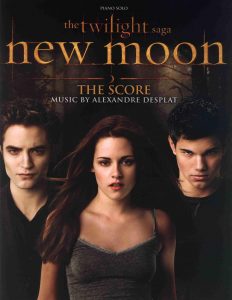 |
Twilight.New.Moon.Music.Score.for.Piano.Solo).Alexandre.Desplat |
| Twilight Saga Eclipse Music From The Motion Picture Soundtrack Piano Vocal Guitar |
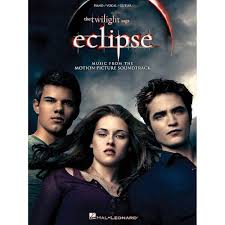 |
Twilight Saga Eclipse Music From The Motion Picture Soundtrack Piano Vocal Guitar |
| Twin Peaks – Audreys Dance Angelo Badalamenti | ||
| Twin Peaks – Laura Palmers Theme Angelo Badalamenti | ||
| Twin Peaks – Twin Peaks Theme Angelo Badalamenti | ||
| Twinkle Twinkle Little Star Variations Suzuki Guitar Vol. 1 (Musescore File).mscz | ||
| Two Socks theme (Dances with Wolves OST) John Barry | ||
| Two Steps From Hell Blackheart Piano Sheet Music by Thomas Bergersen |
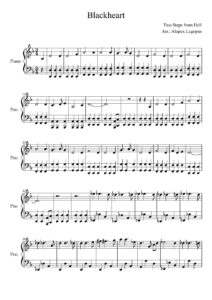 |
|
| Two Steps From Hell Flight Of The Silverbird (Piano Solo) Thomas Bergersen |
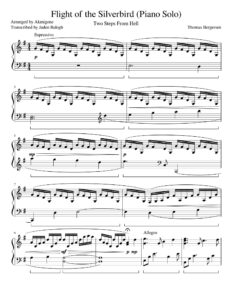 |
|
| Two Steps from Hell Invincible Sheet Music |
 |
|
| Two Steps from Hell Protectors Of The Earth Nick Phoenix & Thomas J. Bergersen | Two Steps from Hell Protectors Of The Earth Nick Phoenix & Thomas J. Bergersen | |
| Two Steps From Hell Star Sky by Thomas Bergersen |
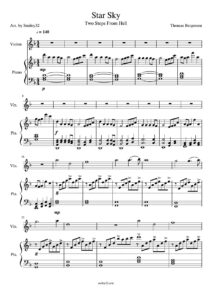 |
|
| Txarango – La Dansa Del Vestit En Fa M |
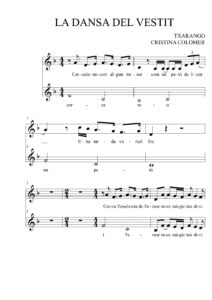 |
|
| Tymoczko, Prof. Dimitri MUSXI 105 Handouts 1 | Book Theory | |
| Tymoczko, Prof. Dimitri MUSIC 106 Handouts | Book Theory |
